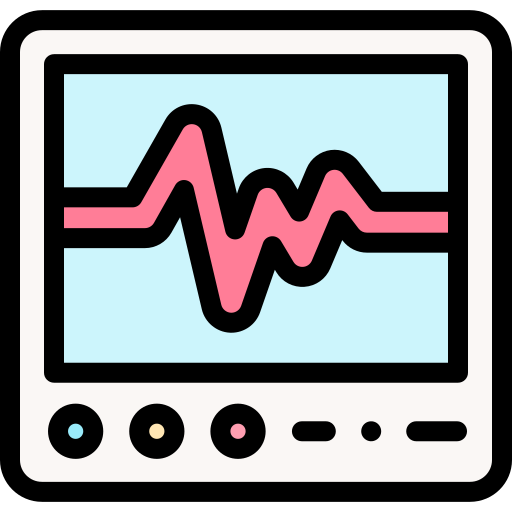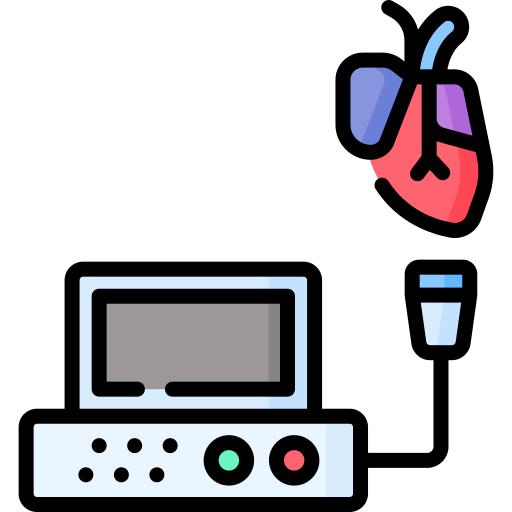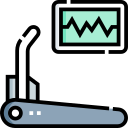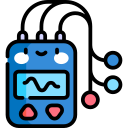
Cardiology is a branch of medicine that deals with the diagnosis and treatment of heart conditions and diseases. It plays a vital role in maintaining cardiovascular health, preventing heart-related complications, and managing chronic heart conditions.
Cardiology care is crucial for:
Diagnosing Heart Conditions: Identifying various heart diseases, such as coronary artery disease, heart failure, and arrhythmias, through advanced diagnostic techniques.
Preventing Heart Disease: Implementing lifestyle changes, medications, and interventions to reduce the risk of developing heart conditions.
Managing Chronic Heart Conditions: Providing ongoing care and treatment for patients with chronic heart diseases to improve quality of life and prevent complications.
Electrocardiogram (ECG): Records the electrical activity of the heart to detect abnormal rhythms and heart conditions.
Echocardiogram: Uses ultrasound waves to create images of the heart, assessing its structure and function.
Stress Test: Evaluates heart function under physical stress, helping to identify coronary artery disease and other heart conditions.
Holter Monitor: Continuously records the heart’s electrical activity over 24-48 hours to detect irregular heartbeats.
Cardiac Catheterization: Involves inserting a catheter into the heart to diagnose and treat certain heart conditions.
Coronary Angiography: Uses contrast dye and X-rays to visualize the coronary arteries and identify blockages.
Cardiac MRI: Provides detailed images of the heart using magnetic resonance imaging to assess its structure and function.
Nuclear Cardiology: Involves using radioactive materials to visualize the heart and assess blood flow and function.
Electrophysiology Study: Examines the electrical activity of the heart to diagnose and treat arrhythmias.
Cardiology care is essential in clinical settings, research, and public health to:
Manage Heart Disease: Provide comprehensive care for patients with heart conditions, including medication management, lifestyle counseling, and surgical interventions.
Conduct Research: Advance the understanding of heart diseases and develop new treatments and interventions.
Public Health Initiatives: Promote heart health through community education and preventive measures to reduce the incidence of heart disease.
Cardiologists, trained in diagnosing and treating heart conditions, play a critical role in:
Diagnosis and Treatment: Using advanced diagnostic tools and treatments to manage heart diseases effectively.
Patient Education: Teaching patients about heart health, risk factors, and preventive measures.
Collaboration: Working with other healthcare professionals to provide comprehensive care and improve patient outcomes.

An Electrocardiogram (ECG) measures the electrical activity of your heart. It's crucial for diagnosing and monitoring heart conditions, assessing how well your heart is functioning, and guiding treatment decisions for various cardiac issues. Regular ECG testing helps identify irregular heartbeats, detect heart disease, and evaluate the effectiveness of treatments, making it essential for effective heart health management.

An Echocardiogram (Echo) uses ultrasound waves to create detailed images of your heart. It's crucial for diagnosing and monitoring heart conditions, assessing heart structure and function, and guiding treatment decisions for various cardiac issues. Regular echocardiograms help evaluate heart chambers, valves, and blood flow, providing essential information for managing heart disease and ensuring effective cardiac care.

A Treadmill Test (also known as a Stress Test) evaluates your heart's performance under physical stress. It’s crucial for diagnosing heart conditions, assessing how well your heart handles increased activity, and guiding treatment decisions for cardiovascular health. During the test, you walk or run on a treadmill while your heart’s electrical activity, blood pressure, and overall response are monitored.

A Holter Monitor is a portable device that continuously records your heart’s electrical activity over 24 to 48 hours. It's crucial for diagnosing and monitoring irregular heartbeats, assessing heart rhythm patterns, and guiding treatment decisions for various cardiac conditions. During the test, small electrodes are attached to your chest and connected to the monitor, which you wear while going about your daily activities.
Cardiology is a branch of medicine that deals with the diagnosis and treatment of heart conditions and diseases. It plays a vital role in maintaining cardiovascular health, preventing heart-related complications, and managing chronic heart conditions.
Cardiology care is crucial for:
Diagnosing Heart Conditions: Identifying various heart diseases, such as coronary artery disease, heart failure, and arrhythmias, through advanced diagnostic techniques.
Preventing Heart Disease: Implementing lifestyle changes, medications, and interventions to reduce the risk of developing heart conditions.
Managing Chronic Heart Conditions: Providing ongoing care and treatment for patients with chronic heart diseases to improve quality of life and prevent complications.
Electrocardiogram (ECG): Records the electrical activity of the heart to detect abnormal rhythms and heart conditions.
Echocardiogram: Uses ultrasound waves to create images of the heart, assessing its structure and function.
Stress Test: Evaluates heart function under physical stress, helping to identify coronary artery disease and other heart conditions.
Holter Monitor: Continuously records the heart’s electrical activity over 24-48 hours to detect irregular heartbeats.
Cardiac Catheterization: Involves inserting a catheter into the heart to diagnose and treat certain heart conditions.
Coronary Angiography: Uses contrast dye and X-rays to visualize the coronary arteries and identify blockages.
Cardiac MRI: Provides detailed images of the heart using magnetic resonance imaging to assess its structure and function.
Nuclear Cardiology: Involves using radioactive materials to visualize the heart and assess blood flow and function.
Electrophysiology Study: Examines the electrical activity of the heart to diagnose and treat arrhythmias.
Cardiology care is essential in clinical settings, research, and public health to:
Manage Heart Disease: Provide comprehensive care for patients with heart conditions, including medication management, lifestyle counseling, and surgical interventions.
Conduct Research: Advance the understanding of heart diseases and develop new treatments and interventions.
Public Health Initiatives: Promote heart health through community education and preventive measures to reduce the incidence of heart disease.
Cardiologists, trained in diagnosing and treating heart conditions, play a critical role in:
Diagnosis and Treatment: Using advanced diagnostic tools and treatments to manage heart diseases effectively.
Patient Education: Teaching patients about heart health, risk factors, and preventive measures.
Collaboration: Working with other healthcare professionals to provide comprehensive care and improve patient outcomes.

An Electrocardiogram (ECG) measures the electrical activity of your heart. It's crucial for diagnosing and monitoring heart conditions, assessing how well your heart is functioning, and guiding treatment decisions for various cardiac issues. Regular ECG testing helps identify irregular heartbeats, detect heart disease, and evaluate the effectiveness of treatments, making it essential for effective heart health management.

An Echocardiogram (Echo) uses ultrasound waves to create detailed images of your heart. It's crucial for diagnosing and monitoring heart conditions, assessing heart structure and function, and guiding treatment decisions for various cardiac issues. Regular echocardiograms help evaluate heart chambers, valves, and blood flow, providing essential information for managing heart disease and ensuring effective cardiac care.

A Treadmill Test (also known as a Stress Test) evaluates your heart's performance under physical stress. It’s crucial for diagnosing heart conditions, assessing how well your heart handles increased activity, and guiding treatment decisions for cardiovascular health. During the test, you walk or run on a treadmill while your heart’s electrical activity, blood pressure, and overall response are monitored.

A Holter Monitor is a portable device that continuously records your heart’s electrical activity over 24 to 48 hours. It's crucial for diagnosing and monitoring irregular heartbeats, assessing heart rhythm patterns, and guiding treatment decisions for various cardiac conditions. During the test, small electrodes are attached to your chest and connected to the monitor, which you wear while going about your daily activities.
Ruler Diagnostics Pvt. Ltd, where we prioritize your health and well-being through comprehensive and precise diagnostic services. Our journey began with a shared vision among seasoned healthcare professionals to establish a diagnostic center that combines cutting-edge technology with compassionate care.